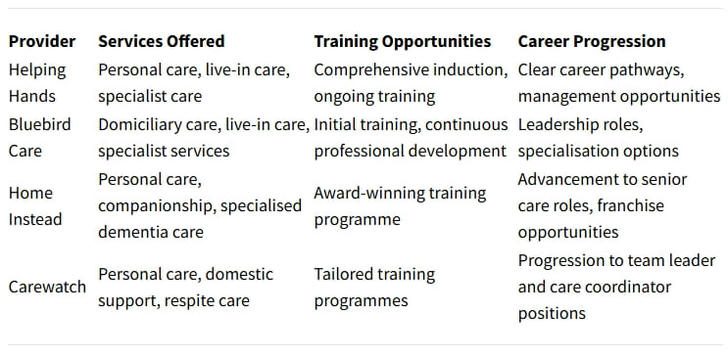Looking for a stable and flexible job? Learn more about home care!
Are you looking for a career that offers stability, flexibility, and a competitive salary? Home care in the UK could be the perfect fit for you! With a growing demand for compassionate caregivers, the industry offers opportunities for both part-time and full-time work, allowing you to choose hours that suit your lifestyle. Find out how you can start your journey in this fulfilling field today!

Empowering Lives: Exploring a Career in Home Care
Home care is a rewarding profession that offers individuals the opportunity to make a meaningful impact on people’s lives. As the population ages and healthcare needs evolve, the demand for compassionate and skilled home care workers continues to grow. This article delves into the world of home care, exploring why it’s an attractive career choice and what it entails.
Understanding the Role of a Home Care Worker
Home care workers play a crucial role in supporting individuals who require assistance with daily activities. These professionals provide personalised care in the comfort of clients’ homes, helping them maintain independence and quality of life. Tasks may include personal care, medication management, meal preparation, and companionship. Home care workers often develop close relationships with their clients, becoming an essential part of their support network.
The Growing Demand for Home Care Services
The home care sector in the UK is experiencing significant growth, driven by an ageing population and a shift towards community-based care. This trend creates numerous job opportunities for those seeking a career in healthcare. As more people prefer to receive care in their own homes, the demand for skilled home care workers is expected to continue rising, offering long-term job security and potential for career advancement.
Skills and Qualities for Success in Home Care
Successful home care workers possess a unique blend of skills and qualities. Empathy, patience, and excellent communication skills are essential for building trust with clients and their families. Physical stamina is important, as the job may involve assisting with mobility and other physical tasks. Additionally, attention to detail, time management, and the ability to work independently are crucial for providing high-quality care in a home setting.
Training and Qualifications for Home Care Careers
While formal qualifications are not always required to start a career in home care, many employers provide on-the-job training. However, obtaining relevant qualifications can enhance career prospects and earning potential. The Care Certificate is a common starting point, covering essential skills and knowledge for care workers. Further qualifications, such as NVQs in Health and Social Care, can lead to more advanced roles and responsibilities within the field.
Benefits and Challenges of Working in Home Care
Working in home care offers numerous benefits, including flexible schedules, diverse work environments, and the satisfaction of making a positive difference in people’s lives. Home care workers often enjoy building meaningful relationships with clients and their families. However, the job can be physically and emotionally demanding, requiring resilience and self-care. It’s important for prospective home care workers to consider both the rewards and challenges of the profession.
Exploring Home Care Providers in the UK
For those interested in pursuing a career in home care, it’s essential to understand the landscape of providers in the UK. Several reputable companies offer employment opportunities and training for aspiring home care workers. Here’s a comparison of some well-known home care providers:

Embarking on a career in home care can be a fulfilling choice for those passionate about making a difference in people’s lives. The sector offers diverse opportunities for personal and professional growth, with the potential to develop a long-term, rewarding career. As the demand for home care services continues to rise, skilled and compassionate care workers will play an increasingly vital role in supporting individuals to live independently in their own homes.
The shared information of this generated article is up-to-date as of the publishing date. For more up-to-date information, please conduct own research.
